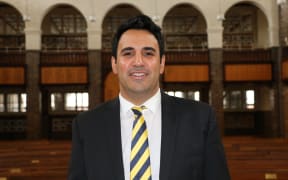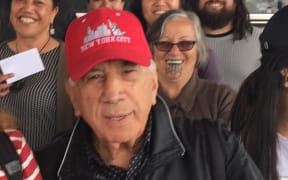A bill to give whare wānanga Māori the right to call themselves universities has met fierce opposition from the country's existing institutions..

Photo: 123rf
All eight universities oppose the move, saying it would harm their international brands.
Te Tauihu o nga Wānanga chairwoman Mereana Selby said the opposition was outrageous and unfair.
"I think that's insulting. It's a pity that they don't see it as an enhancement of their brand - in fact, that wānanga are interested in sharing a descriptor.
"Our brand and our provision comes under the same kind of scrutiny nationally and internationally as does universities and, unless there is something wrong with that kind of scrutiny, then I don't see what the universities' case is."
There are currently three whare wānanga Māori, which offer a range of qualifications including bachelor, master and doctoral degrees.
Tertiary institutions with a strong focus on tikanga and kaupapa Māori are recognised under the 1989 Education Act.
Victoria University vice chancellor Grant Guilford said that was not enough to give them university status.
"The predominance of research at university is expected to be much higher, the staff at university are primarily concerned with more advanced learning, and research and teaching are closely interdependent.
"At the moment the current wānanga do not have characteristics of a university - if and when they choose to develop that, Universities New Zealand would have no objections at all to that application."
But Ms Selby said the universities' stance undermined quality education.
"To me it's modern day racism from our western-orientated think tanks, with the wānanga somehow diminishing their brand - we could very easily say that the reverse is the case for us too when they use the word wānanga.
"However in the interest of rangatiratanga and in the interest of whanaungatanga, we ought to be better than that."
Minister for Tertiary Education Paul Goldsmith said he understood the argument but it was only fair the wānanga were given the same opportunity as other institutions to use the term.
"At the moment you've got the universities, polytechnics, and we also have private training enterprises that at the moment can apply to use one of these protected terms such as university, but the wānanga currently have no path to do that.
"So that is what this bill introduces."
Prof Gilford said all eight New Zealand universities were ranked in the top three percent of the world's 18,000 universities.
He said bringing in wānanga Māori would diminish what it meant to be an institution with international recognition.
"It undermines that very precious, high-quality image of the university sector as understood by the rest of the world - that is that these are research-active universities at an international standard."
In a statement, Te Whare Wānanga o Awanuiārangi chairman Hirini Moko Mead described the stance taken by Universities New Zealand as disappointing.







